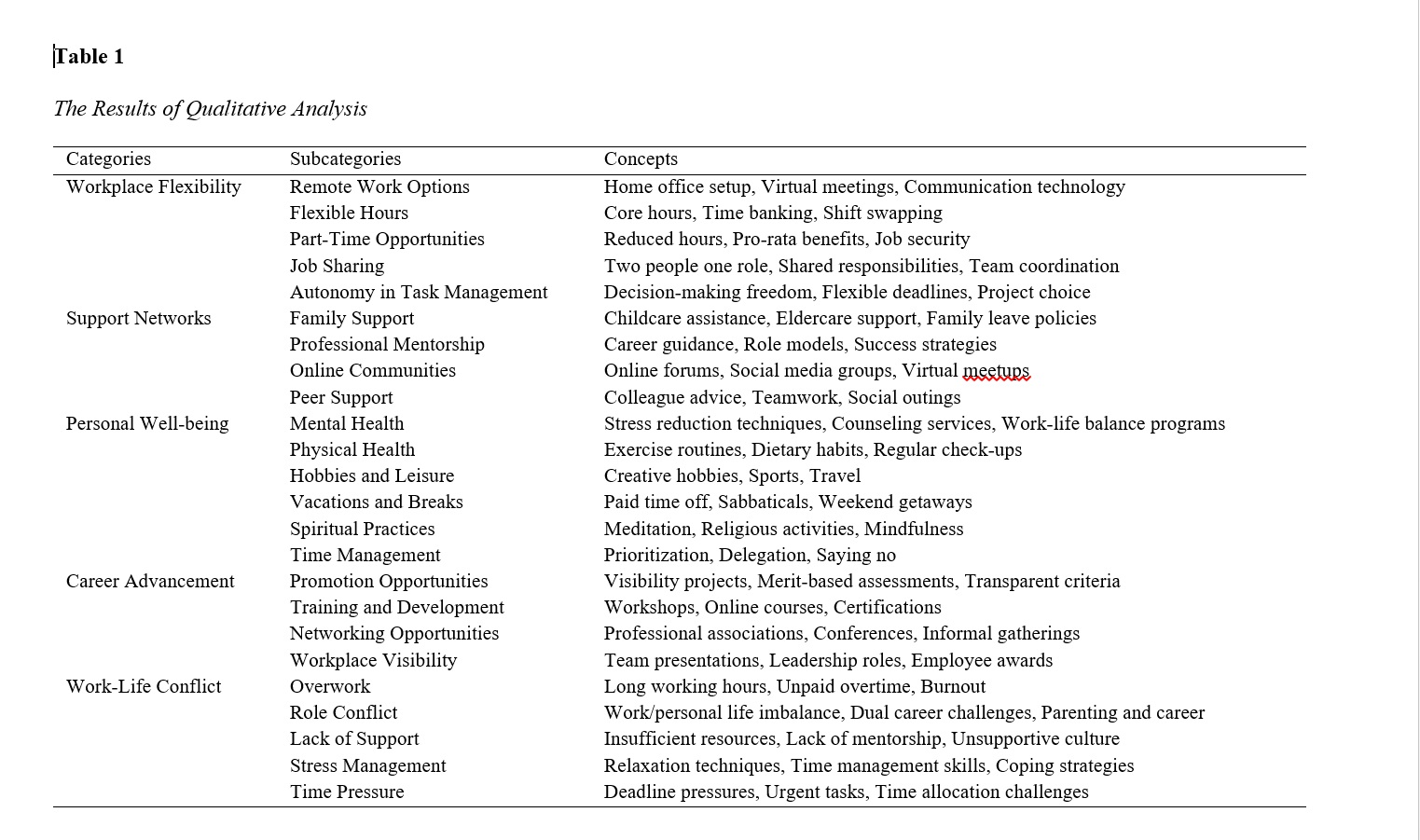Work-Life Integration in Women's Lives: A Qualitative Study
Abstract
Objective: Work-life integration represents a critical challenge for many, especially women who often navigate complex interplays of professional aspirations and personal responsibilities. This qualitative study aims to explore the experiences of work-life integration among women, identifying the strategies they employ and the challenges they face, with the objective of informing policies and practices that support gender equity and work-life balance.
Methods and Materials: Employing a grounded theory approach, the study conducted semi-structured interviews with 23 women from various professional backgrounds. Participants were selected through purposive sampling to ensure a wide range of experiences were represented. Interviews focused on daily routines, challenges in work-life integration, and strategies for managing these challenges. Data were analyzed using thematic analysis to identify key themes and patterns.
Findings: The study identified five main themes related to work-life integration: Workplace Flexibility, Support Networks, Personal Well-being, Career Advancement, and Work-Life Conflict. These themes highlight the importance of flexible work arrangements, robust support systems, attention to personal well-being, pathways for career advancement, and the ongoing negotiation of work-life conflict. Each theme encompasses several subthemes and concepts that illustrate the complex and varied strategies women employ to achieve work-life integration.
Conclusion: The findings underscore the multifaceted nature of work-life integration for women, emphasizing the crucial role of workplace flexibility, supportive networks, and policies that prioritize personal well-being and career advancement. The study suggests that addressing these key areas is essential for promoting work-life balance and gender equity in the workplace.
Downloads

Downloads
Additional Files
Published
Issue
Section
License
Copyright (c) 2024 Solmaz Bulut (Author); Mehdi Rostami (Corresponding Author); Sefa Bulut , Baidi Bukhori , Seyed Hadi Seyed Alitabar , Zarmin Tariq, Zohreh Zadhasn (Author)

This work is licensed under a Creative Commons Attribution-NonCommercial 4.0 International License.









